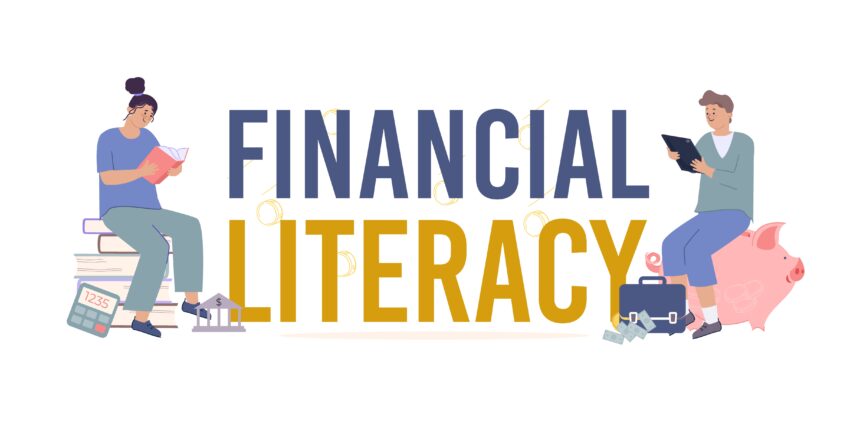Money is an important part of our lives and affects almost every decision we make, from the place we call home to our career choices and dreams for the future. That’s where having a personal financial consultant can come in handy. If you want to get out of debt, put aside savings for what’s next, or simply understand where your money goes each month, a personal consultant can help steer you toward a more stable financial future.
A lot of people think financial advisors are just for those who are wealthy, but that’s not how it has to be. A good financial consultant can assist everyday folks in making smart choices with their money, saving for unexpected expenses, and feeling more relaxed about their financial life.
In this piece, we’ll break down what exactly a personal financial consultant does and share ten straightforward steps to help you take the reins of your financial situation, starting right away.

Image Source:Freepik
Step 1: What Does a Personal Financial Consultant Do?
A personal financial consultant is a professional who knows the ins and outs of money matters. Unlike other financial advisors who might push certain products on you, a consultant aims to help you manage your finances independently.
Here are some things they usually handle:
– Checking your income and spending
– Crafting a budget that works for you
– Giving advice on investments
– Planning for major purchases, like a house or college tuition
– Sharing tips on taxes
– Helping improve your credit score
It’s like having a coach who keeps you focused and helps you make smart moves with your money, without letting feelings get in the way.
Step 2: Evaluating Your Current Financial Situation
Before diving into changes, you’ll want to understand exactly where you stand financially. Most consultants start off with a financial assessment to get a clear picture of your circumstances, shining a light on both what you do well and areas that need improvement.
This assessment typically looks at:
– How much you earn compared to how much you spend
– The types and totals of any debts you have
– Your credit score status
– Areas of unnecessary spending
– Your overall net worth, which is your total assets minus any debts
With this info, your consultant can help you tackle issues like spending too much or poorly managing your debts.
Step 3: Setting Clear Financial Targets
With the details in hand, it’s time to outline what you want to achieve. Your consultant will work with you to set both short-term and long-term goals. Some examples might be:
– Paying off $10,000 in credit card debt within a year
– Saving up $50,000 for a down payment on a house
– Building a retirement fund of $1 million
– Going on a vacation without any debt
– Putting aside money for a child’s education
You can think of goals as fitting into different time frames:
– Short-term (less than 1 year): Emergency savings, making minor debt payments
– Mid-term (1-5 years): Buying a home, getting a new car
– Long-term (5+ years): Retirement, investing in bigger opportunities
Step 4: Making a Customized Budget
Creating a budget shouldn’t feel like being boxed in; it’s more about having a game plan for living your best life. A consultant will help you find a budgeting method that fits your income and lifestyle.
Here are some common budgeting styles:
– Zero-based budgeting: Giving every dollar a specific job.
– The 50/30/20 rule: Allocating 50% for needs, 30% for wants, and 20% for savings and debt.
– The envelope method: Using physical envelopes for different spending categories.
– Reverse budgeting: Saving first and then using the remaining funds for general expenses.
Step 5: Paying Off Debt Wisely
Debt can be a heavy weight to carry. But not all debt is made equal. Your consultant will help you figure out which debts are urgent to pay off first and which are lower-priority but still important.
Some common strategies for tackling debt include:
– Snowball method: Starting with the smallest debts for quick wins.
– Avalanche method: Concentrating on paying off debts with the highest interest rates to save money over time.
– Debt consolidation: Combining several debts into one loan with lower interest.
– Balance transfers: Shifting debts to cards that offer lower interest rates for a limited time.
Step 6: Setting Up an Emergency Fund
Think of an emergency fund as your financial safety net. Having three to six months’ worth of expenses saved up can be a lifesaver during unexpected events.
Here’s how your consultant can help:
– Decide how much you should save
– Recommend the best savings accounts to use
– Create a savings strategy that fits your needs
Step 7: Investing for What’s Ahead
Once you’ve got a solid financial base, it’s time to look at ways to grow your money. A consultant can simplify the investing process and design a plan that matches your goals and comfort level.
Possible investment avenues include:
– Stocks and ETFs
– Bonds
– Real estate
– Retirement accounts like 401(k)s or IRAs
Step 8: Planning Well for Taxes and Retirement
Taxes can really chip away at what you’re saving if you don’t have a good plan. A consultant can assist in developing tax strategies that fit with your long-term aspirations.
Some strategies might involve:
– Maxing out contributions to your retirement accounts
– Making use of tax deductions
– Planning tax-efficient ways to withdraw money later on
Step 9: Protecting Your Finances with Insurance
As your finances grow, it’s crucial to protect your assets with the right types of insurance. This isn’t just an extra; it forms a key part of your financial strategy.
Some insurance types you should consider include:
– Life insurance
– Health insurance
– Disability insurance
– Homeowners or renters insurance
Step 10: Keeping an Eye on Things as You Go
Your financial journey doesn’t just end once you have a plan in place. Life is always changing, and your consultant can help you adjust your strategies as needed.
Several life changes could influence your financial plan, like:
– Changing jobs
– Getting married or divorced
– Welcoming children
– Making big purchases
Wrapping It Up: Your Path to Financial Freedom with a Consultant
You don’t have to tackle this all alone. When you have a personal financial consultant at your side, you’re not just getting advice; you’re gaining a partner who can help you make wise financial choices and face your financial journey with confidence. Whether you’re struggling with debt or simply want to learn better ways to manage your money, now’s the time to get started. Remember, financial freedom isn’t just about how much you make; it’s all about how well you manage what you have.
More on Afripati


